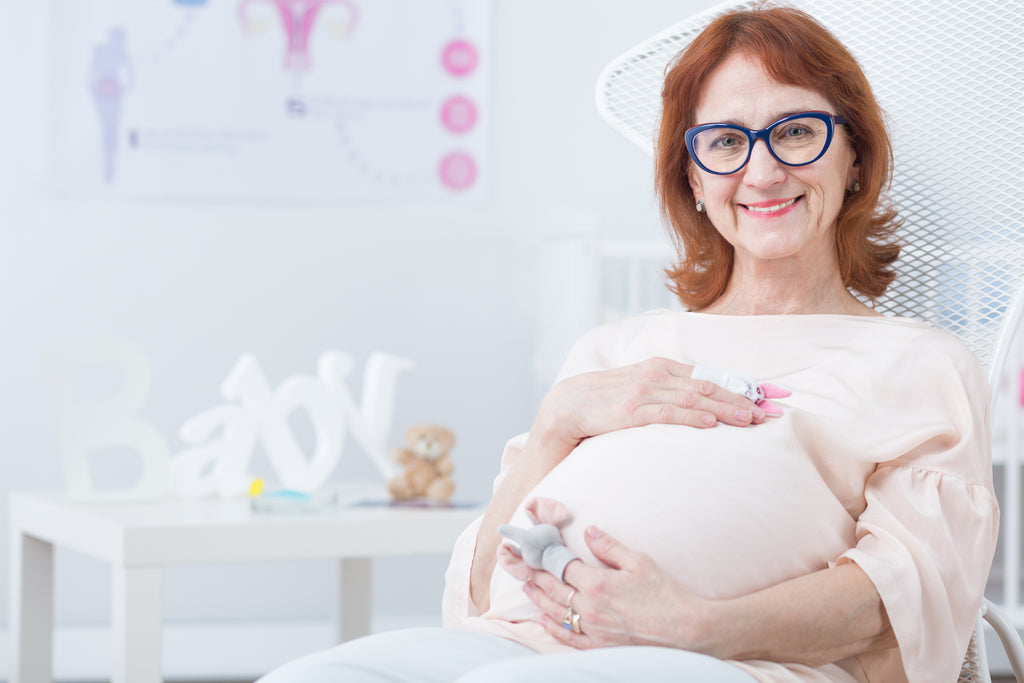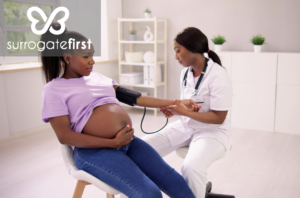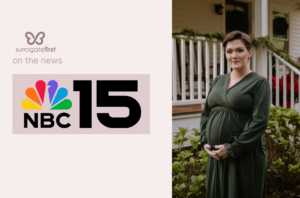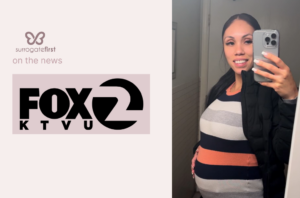If you’re into your 30s or approaching your late 30s, you might begin asking, how old is too old to have a baby?
The truth is, while your body continues to produce eggs there is always the possibility that you can get pregnant. There are even procedures in modern science that allow you to get pregnant without ovarian function. However, the chances of you getting pregnant naturally and the health risks involved for you and your child increase as you get older into your 40s.
Its important to understand that it may not be too late for you to get pregnant, but there are additional risks and factors you should consider if you want to have a child in your mid-late 30s or older.
Fertility Over Time
To address the question, “how old is too old to have a baby?”, you must first understand that every woman is different, so there is no set age where a woman can no longer have a healthy pregnancy. Science does tell us though that there are some general guidelines for more ideal and less ideal ages for women to get pregnant.
Reaching Menopause
Women are most fertile from the time they have their first period and fertility decreases until menopause and beyond. Menopause is the stage where a woman’s menstrual cycle will stop for a year or more.
When you first hit puberty, your body has anywhere between 300,000 and 500,000 eggs. As you get older, this number of eggs decreases, along with your chances of pregnancy.
By the age of 37, women have about 25,000 eggs. At 51, the number of eggs goes down to as little as 1000. Not only does the quantity of your eggs decrease as you get older, but the quality of your eggs also decreases as you approach menopause, and this decrease can pose potential health risks.
Chance of Pregnancy
Since you have fewer and fewer eggs as you get older, the chances of pregnancy go down.
Women under 30 years old have an 87% chance of pregnancy. At 30 years old, women have a 75% chance of getting pregnant and at age 35, this percentage goes down to 66%. By age 40, women have a 44% chance of pregnancy.
It is still possible for you to get pregnant beyond 40, in general though, it does become more difficult. The reduced chance of pregnancy is not only from a reduced number of eggs, it also because of other hormonal changes in a woman’s body.
Advanced Maternal Age
Advanced Maternal Age, or AMA, is pregnancy after 35. Do not let this title discourage you if you want to have children at this age, as many healthy pregnancies occur every year after 35. It’s just important to understand the potential risks that are now more likely and you should take steps to minimize those risks if you plan on getting pregnant at 35 or older.
Health Risks
These risks are not meant to discourage you from having a child if you are approaching your 40s or later. These are meant to help you maximize your chances of a healthy pregnancy if you decide to have one. Keep these risks in mind, and do all that you can to minimize them from occurring to protect your health and the health of your child.
Infertility
One of the potential risks is infertility. Since women in their later 30s are closer to menopause, the number of eggs has gone down. Also, since the quality of the remaining eggs is lower, they are harder to fertilize.
Having Multiple Children
The chances of twins are more likely over 35 years. The chances of you bearing multiples as you get older is because of hormonal changes in your body. While having two or more kids is wonderful, bearing twins in your later 30s has more potential health risks.
Miscarriage Risk
Due to the drop in egg quality, there is a higher risk of miscarriage as you get older. Other health conditions like diabetes and high blood pressure can also increase the chances of pregnancy loss. There is also the chance of stillbirth. Doctors recommend that women who wish to have a pregnancy after 35 maintain their prenatal appointments to keep track of the health of the child.
Chromosome Issues & Low Birth Weight
The chances for you to have a child with down syndrome go from 1 in 1480 at age 20 to a 1 in 85 chance at age 40. The chances increase because the health of DNA along with the health of the body tends to decline over time. Also, due to maternal complications, there is an increased chance of a baby born with lower birth weight or premature.
Surrogacy as an Option
If you have had trouble getting pregnant at years 35 or older, you can consult your doctor to consider alternative methods of getting pregnant like surrogacy.
Surrogacy is when a surrogate mother will go through the pregnancy to have your child. You will first find a suitable mother to have the child, have them undergo the pregnancy, and then fulfill all of the legal work to have the child in your custody after it is born.
Taking Proper Precaution
Speak to your doctor about the potential health risks for your situation. They can advise you about the best course of action to take for your particular age and health needs.
Together, you and your doctor can find the best way to increase your chances of getting and having a healthy pregnancy. After you create your plan, you can take steps to improve your overall mental, physical, and emotional health to prepare for your pregnancy.
Final Thoughts
Scientifically, it’s never too late to have a pregnancy. With that said, the older you get, there are higher the health risks and lower the chances of pregnancy occurring. You can have a successful and healthy pregnancy and increases your chances by coming up with a plan. Work with your doctor and remember that every situation is different because of you, your body, and your health needs.
About SurrogateFirst
SurrogateFirst is a boutique surrogate agency specializing in quickly matching intended parents around the world with our fully-vetted, exceptional surrogates.
We help individuals and couples, regardless of race or sexual orientation, build their families through the miracle of surrogacy.
Every team member at SurrogateFirst is either a former intended parent or an experienced surrogate herself. We also have first-hand knowledge of what it takes to have an incredible, successful surrogate journey.








